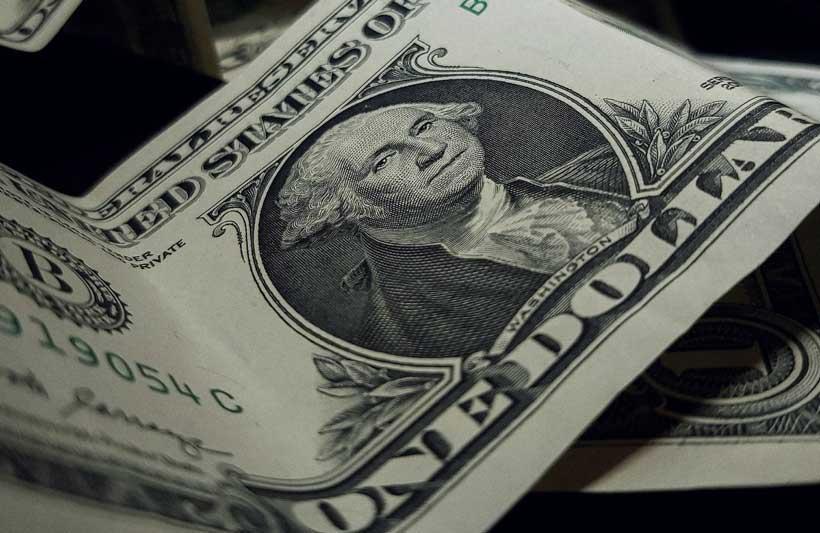By
Timothy Hopper
Africa-Press – Eritrea. Donald Trump, the current President of the United States, has placed the global economy on a turbulent path with his controversial economic and trade policies. The imposition of tariffs on imports, interference in Federal Reserve monetary policy, and confrontational approaches in foreign affairs have all shaken global confidence in the United States. As a result, the dollar—long regarded as the world’s primary reserve currency—has come under unprecedented pressure. These “America First” policies have not only disrupted international trade relations, but also encouraged countries to reduce their reliance on the dollar, paving the way for its declining hegemony. If this trajectory continues, the dollar’s position within the global financial system may be jeopardized, potentially upending the current economic order. History shows that no reserve currency retains dominance forever. The British pound sterling, once the leading global currency until the early 20th century, lost its status to the dollar following two world wars and poor policy decisions by the UK. Today, America’s erratic economic and political strategies may be setting the stage for a similar fate for the dollar.
Under the banner of “America First,” Trump has imposed steep tariffs on imports from key trading partners such as China, the European Union, and Japan. In the trade war with China, U.S. tariffs on Chinese goods reached as high as 145 percent, prompting retaliatory Chinese tariffs of up to 125 percent on American products. While these tariffs were ostensibly aimed at protecting domestic industry and reducing the trade deficit, they have in reality disrupted global supply chains. According to a report by the Brookings Institution, these policies have cost the U.S. economy about 0.5 percent of its GDP and raised consumer prices. U.S. tariffs of 20 to 24 percent on European and Japanese goods have also strained ties with long-standing allies, pushing them toward strengthening trade relations with non-dollar economies such as China and Russia. For instance, the EU recently signed new trade agreements with China, while Japan has entered bilateral deals with India and Vietnam to reduce dollar dependence in regional commerce. These developments have reduced global demand for the dollar and created opportunities for alternative currencies like the yuan and the euro to emerge as potential substitutes.
Trump has repeatedly and publicly criticized the Federal Reserve for its refusal to lower interest rates, urging more expansionary monetary policies to stimulate growth. Such political interference has raised concerns over the Fed’s independence and eroded global trust in U.S. monetary decision-making. According to data from the International Monetary Fund (IMF), the dollar’s share of global central bank reserves declined from 71 percent in 2016 to 68 percent in 2024, while China’s yuan rose from 1 percent to 3.2 percent during the same period. This trend reflects an increasing global inclination toward currency diversification to mitigate the risks of overdependence on the dollar. Diminishing confidence in U.S. monetary policy is driving central banks to accumulate more stable or non-dollar reserves. For example, India and Brazil have recently announced plans to convert portions of their reserves into yuan and euro. Although these changes may seem modest in the short term, they could significantly undermine the dollar’s dominance in the long run.
Trump’s confrontational foreign policy—marked by reduced support for NATO and deteriorating relations with the EU—has created an unprecedented rift among traditional Western allies. This erosion of trust has opened the door for economic rivals like China and Russia to expand their influence. Through its Belt and Road Initiative and yuan-based trade agreements with over 40 countries across Asia, Africa, and Latin America, China has chipped away at the dollar’s role in global trade. China’s Cross-Border Interbank Payment System (CIPS), now involving over 1,500 financial institutions in 100 countries, offers an alternative to SWIFT and further reduces dollar reliance. Russia, particularly following sanctions linked to the Ukraine crisis, has actively distanced itself from the dollar. Over 60 percent of its trade with China is now conducted in yuan, and it has signed agreements with India and Turkey to use local currencies. These actions—mirrored by similar moves from other countries—highlight a global trend toward reducing dollar dominance.
The weakening of the dollar would have profound implications for both the United States and the world. At present, dollar dominance allows the U.S. to finance its massive budget deficit—over $1.8 trillion in 2024—through low-cost borrowing. Should global demand for the dollar fall, borrowing costs will rise, and higher interest rates could trigger a recession in the U.S. Furthermore, a weaker dollar would raise the price of imports, exacerbating inflation—an especially serious challenge for a country that relies on imports for 15 percent of its raw materials and consumer goods. Globally, the decline of the dollar could lead to volatility in financial markets and slower economic growth. Countries that hold a significant share of their reserves in dollars, such as Japan and South Korea, may face considerable losses, while emerging economies with dollar-denominated debt could experience severe financial crises.
Donald Trump’s economic and trade policies—from tariff wars and pressure on the Federal Reserve to the weakening of traditional alliances—pose a serious threat to the dollar’s status as the world’s primary reserve currency. By reducing global demand for the dollar and encouraging rivals to adopt alternative currencies, these policies have challenged the foundations of the international financial order. While the end of dollar hegemony may not be imminent, the continuation of current trends could gradually erode its share in global trade and reserves. The United States now stands at a crossroads: much like Britain in the 20th century, it risks losing its greatest economic advantage due to misguided policies. Is this the end of dollar dominance, or a moment for the U.S. to reassess its global strategy? The future will depend on the choices made today.
moderndiplomacy
For More News And Analysis About Eritrea Follow Africa-Press







